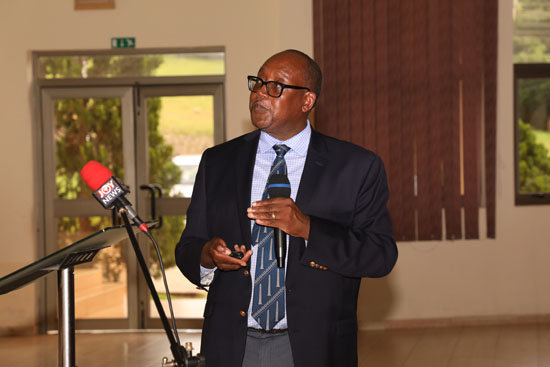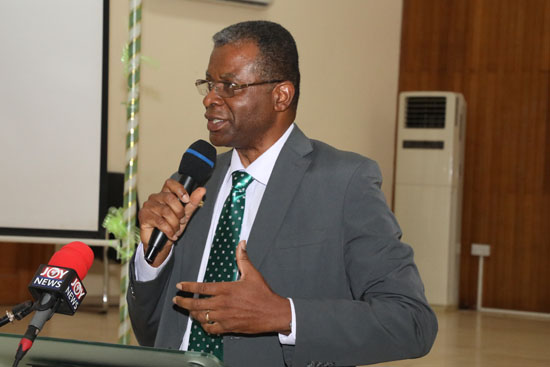
UMaT organises 2nd Annual Public Lecture on Governance
The University of Mines and Technology (UMaT), Tarkwa has organised the 2nd Annual Public Lecture on Governance on the topic "Leveraging Local Content Policy to Scale-up Value Creation in the Mining Sector for Industrial and Economic Transformation of Ghana".
The lecture was delivered by Dr Kojo Busia an International Development Policy expert and the Chief Adviser, Natural Resources Management Section, Climate Change, Environment and Natural Resources Management Division United Nations Economic Commission for Africa (UNECA) in Addis Ababa, Ethiopia.
Advertisement
According to Dr Busia, Ghana’s economic landscape had been historically shaped by the mining sector which is dominated by gold.
He reiterated that, while mining has significantly contributed to Ghana’s growth and development, the extent to which the country had tapped the full potential to create strong and sustainable linkages with the broader economy had been limited.
He indicated that within the mining sector, only few strong domestic upstream industries had been developed to supply to the mining sector.
He further said that, manufactured inputs, mining services and capital goods are often imported or supplied by foreign firms located in Ghana.
“Yet, the potential is great with an annual operational expenditure for the gold mining industry alone in Ghana for the year 2015 accounting for 1.21 billion, equivalent to 3% of Ghana’s GDP, he added.
Additionally, regional market for procurement on the gold sector accounted for 2.66 billion in neighbouring countries like Mali, Burkina and Cote d’Ivoire”, he emphasised.
He added that, to optimise this potential, Ghana embarked on a Country Mining Vision exercise which was based on the continental African Mining Vision to transform the mining sector to achieve diversification and industrialisation.
Dwelling on why the local content policy in the sector did not lead to industrialisation, Dr Busia pointed out that, the Local Content Policy, as it stands now, did not provide incentives for an explicit value addition in the upstream mining supply chain industry; it had not been able to overcome the risks of fronting, that is, mostly foreign-owned firms registered locally; that the supply-side constraints facing local suppliers (including infrastructure; access to finance; Technology Research and Development) had not been addressed so far.
Mining companies have supply chain initiatives but they are limited to the mining communities and focus on low-skilled supply chains like catering services, uniforms and security services; often based on Corporate Social Responsibility (CSR) but considerations not on value creation or addition; Local Content policy not focused on supporting local firms in taking up opportunities e.g. Lack of a National Innovation System.
Dr Busia encouraged UMaT to strive to become a manufacturer of digital equipment that would provide services to the mining value chain.
He was hopeful that UMaT would enter into partnerships with global supply chains with a view to becoming a regional hub for original equipment manufacturing.
“Digital technology in the mining industry has become the potential to deliver a quantum leap in the way value is added across the value chain. It is a challenge and opportunity. Government, mining companies and academic institutions would have to ‘up their game’ with initiatives to maximise the use of technology,” he explained.

The Vice Chancellor of UMaT, Prof. J. S. Y. Kuma, said the University was dedicated to training quality manpower for the mining sector, adding that a number of mining equipment service companies employed Ghanaians.
He indicated that products of UMaT formed the core of the technical and managerial staff in the sector, saying that “this shows how well we are positioned to contribute to local content policy in the mining sector.”
Prof. Kuma, however, stated that “What we need is support from both government and industry players to continue to train more competent human resources for the sector.”
Source: Paul Y. A. Yeboah, Head, University Relations Office



